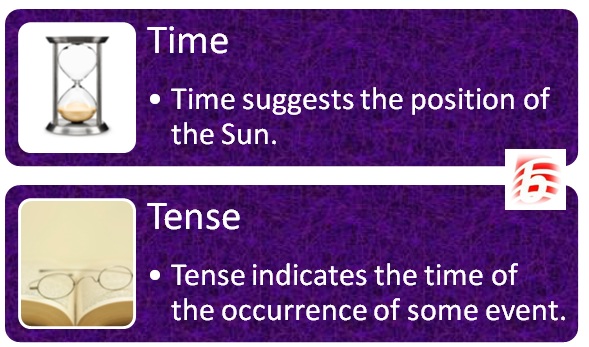Time vs Tense
Time and Tense are two words that have distinct usage and meanings, and it’s important to first understand their differences. Time is primarily utilized as a noun in various situations, but it can occasionally be used as a verb. It originated from the Old English word tīma. Tense, conversely, can be used as an adjective, verb, and most significantly, as a noun in the realm of Grammar. Time implies the Sun’s position, while tense signifies the occurrence time of a particular event. Therefore, time can be considered a subset of tense.
What does Time mean?
The word time can be employed in various ways, such as:
– What is the time now?
– Time is a healer.
– How many times should I say this?
– Time and again I have been saying this.
In each sentence, the word time is used differently. It can convey the Sun’s position, be used in a general sense, represent a number, or suggest repetition.
There are also numerous phrases using time, such as “about time,” “in time,” and “on time.”
What does Tense mean?
Tense is a grammatical term that indicates the time of an action. There are three primary types: present tense, past tense, and future tense. Present tense indicates a current action, past tense signifies an action that occurred earlier, and future tense points to an action that will take place later.
These three primary tenses also have several sub-tenses, such as simple present tense, present continuous tense, present perfect tense, and present perfect continuous tense.
Key Takeaways
- Time is mainly used as a noun and sometimes as a verb, while tense can be used as an adjective, verb, and noun, with its most important usage being as a noun in grammar.
- Time suggests the Sun’s position, while tense indicates the occurrence time of an event, making time a subset of tense.
- Tense is divided into three primary types (present, past, and future), with each having several sub-tenses.
